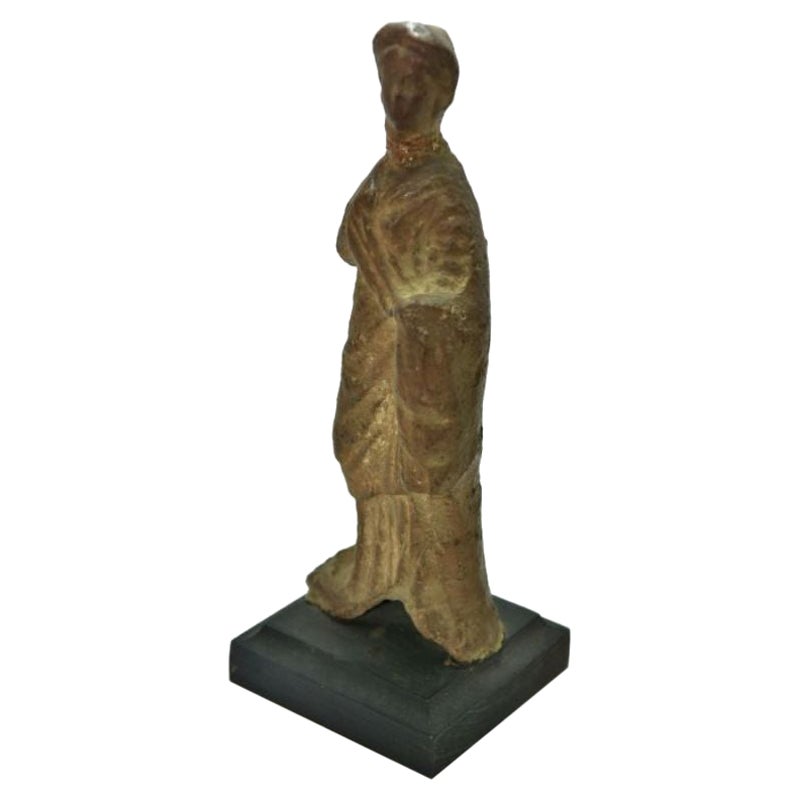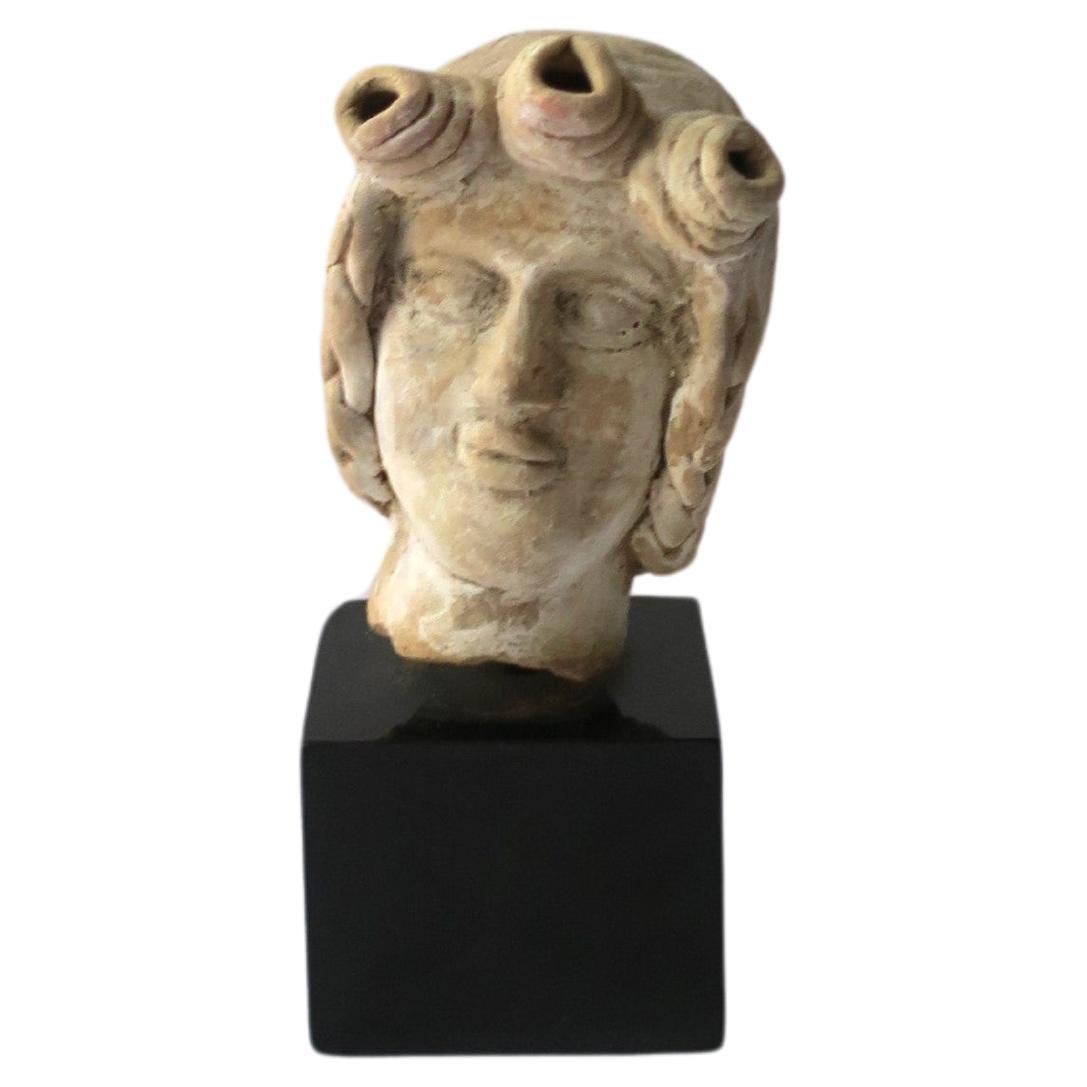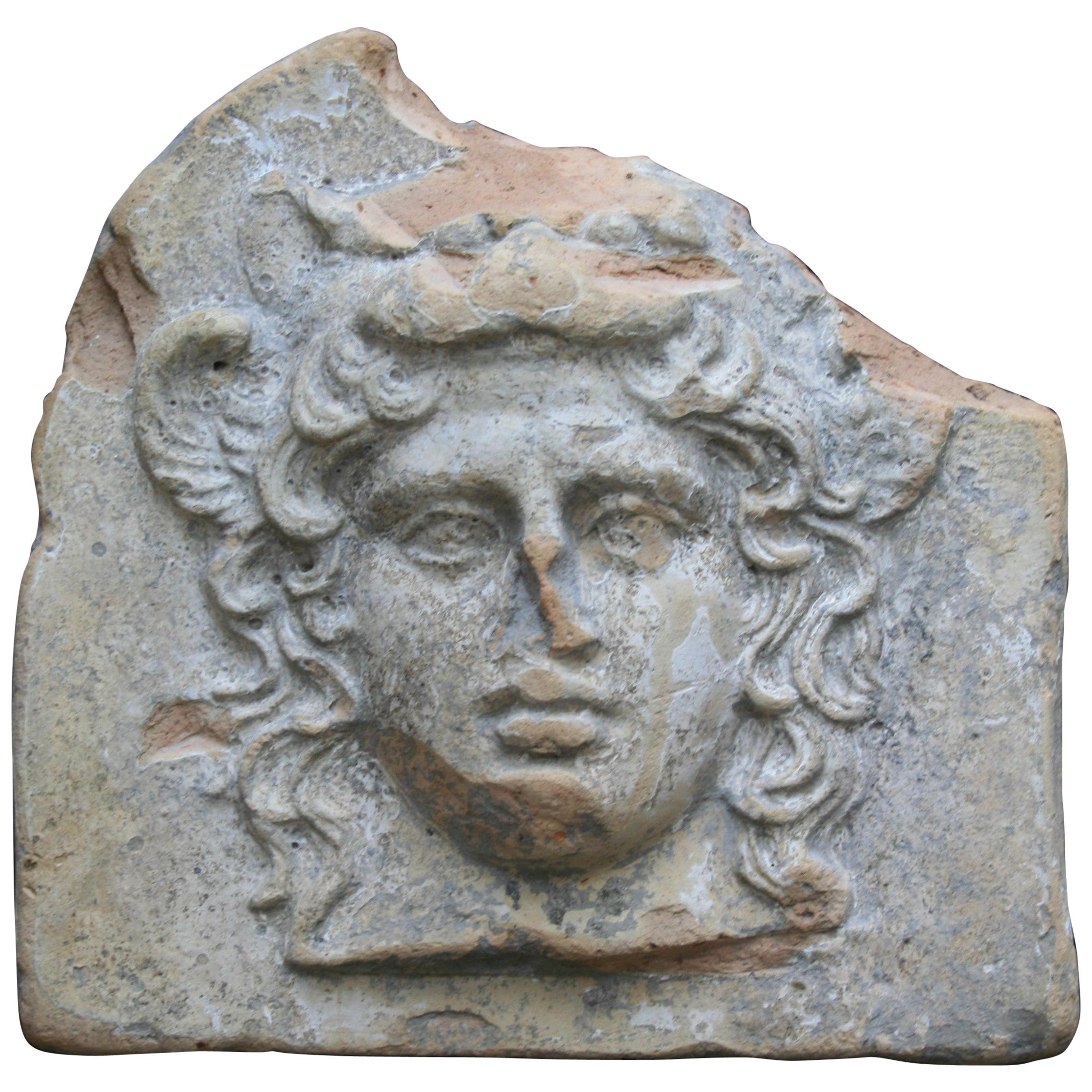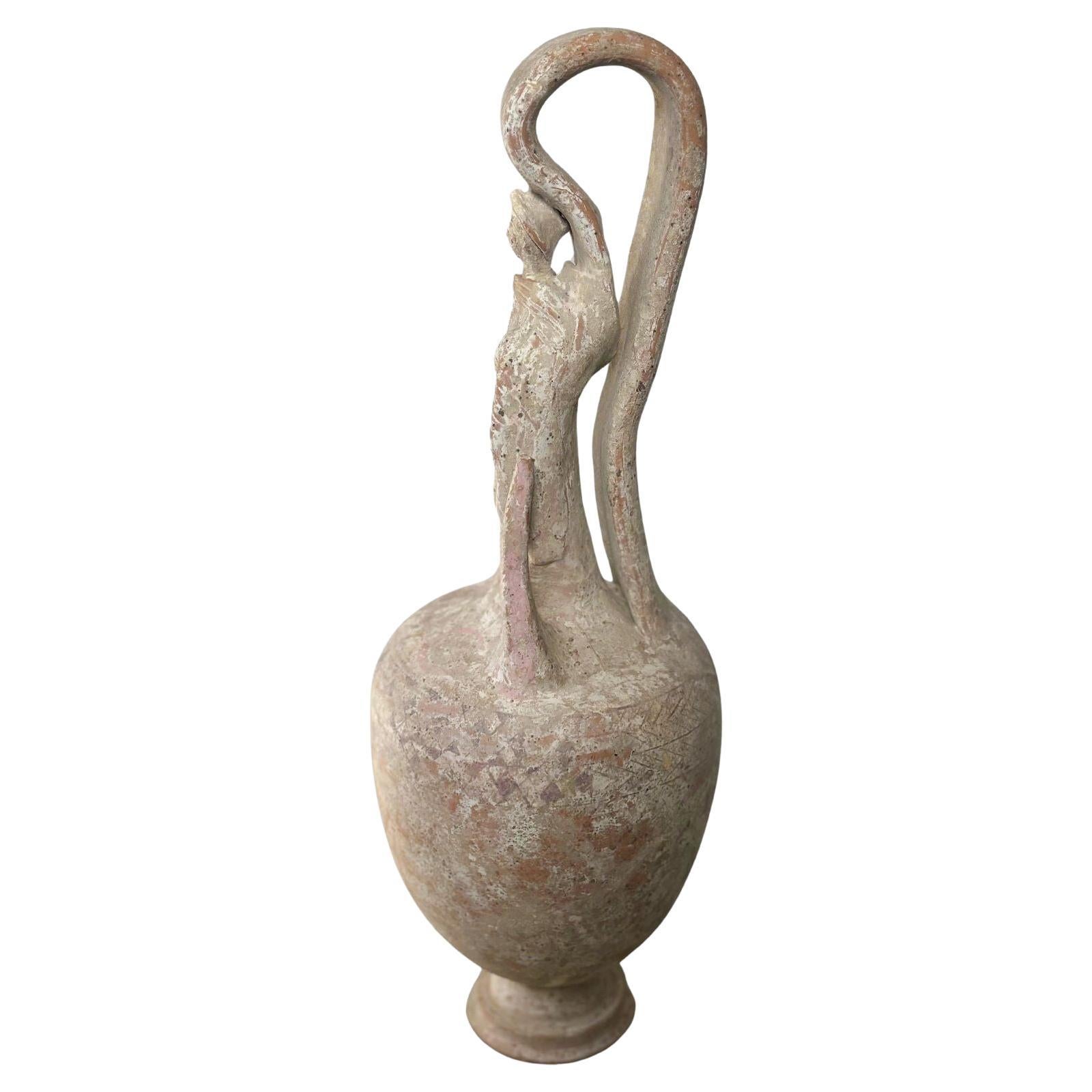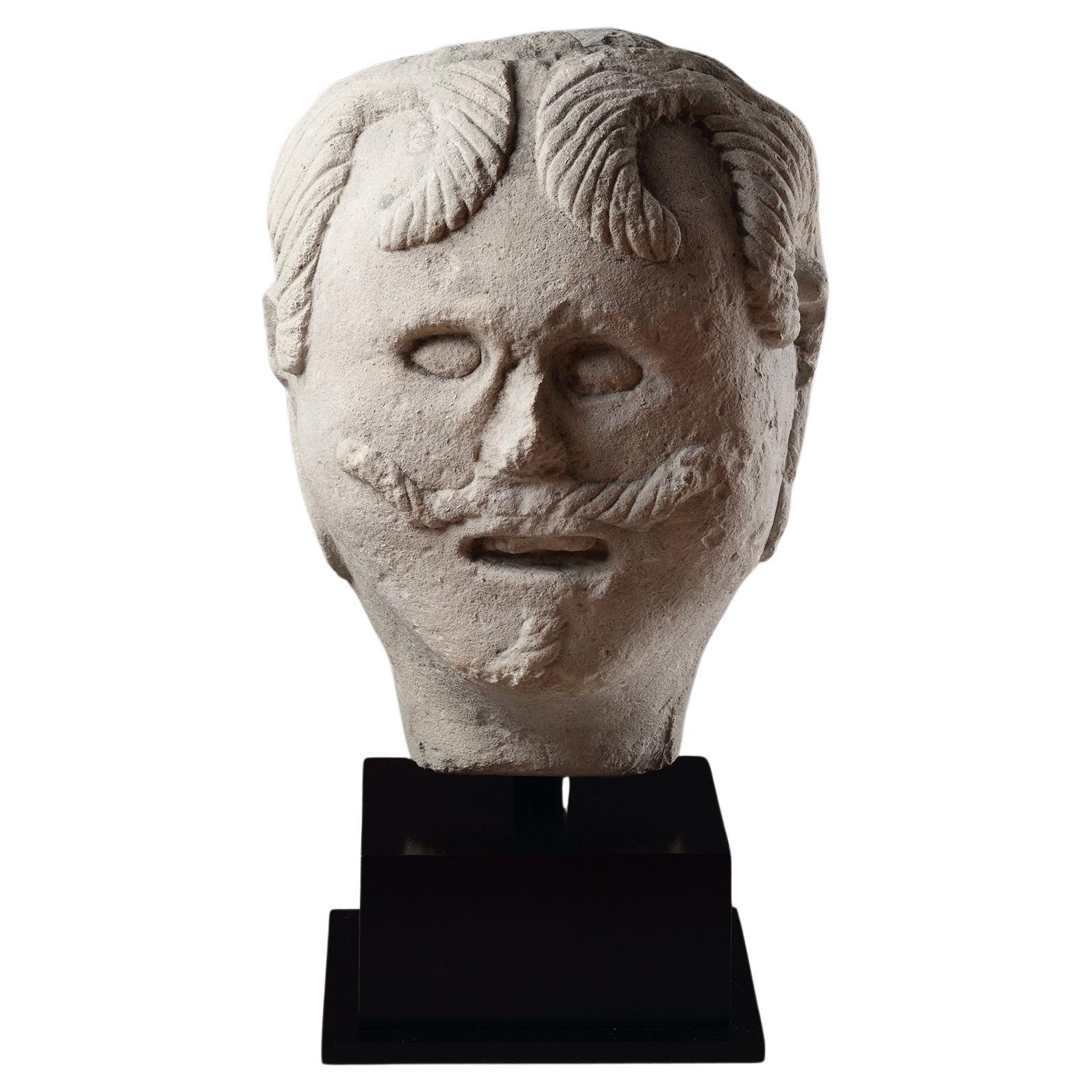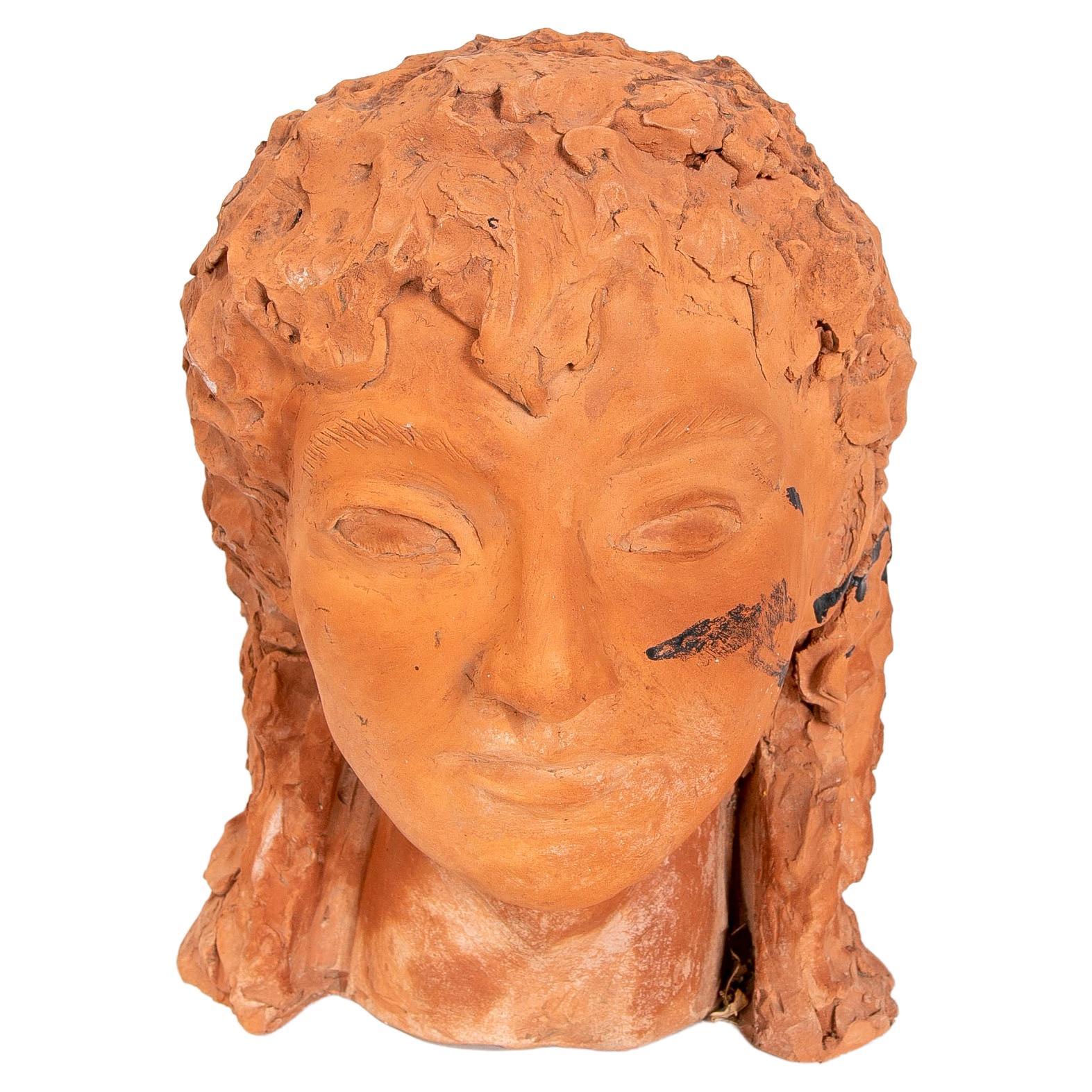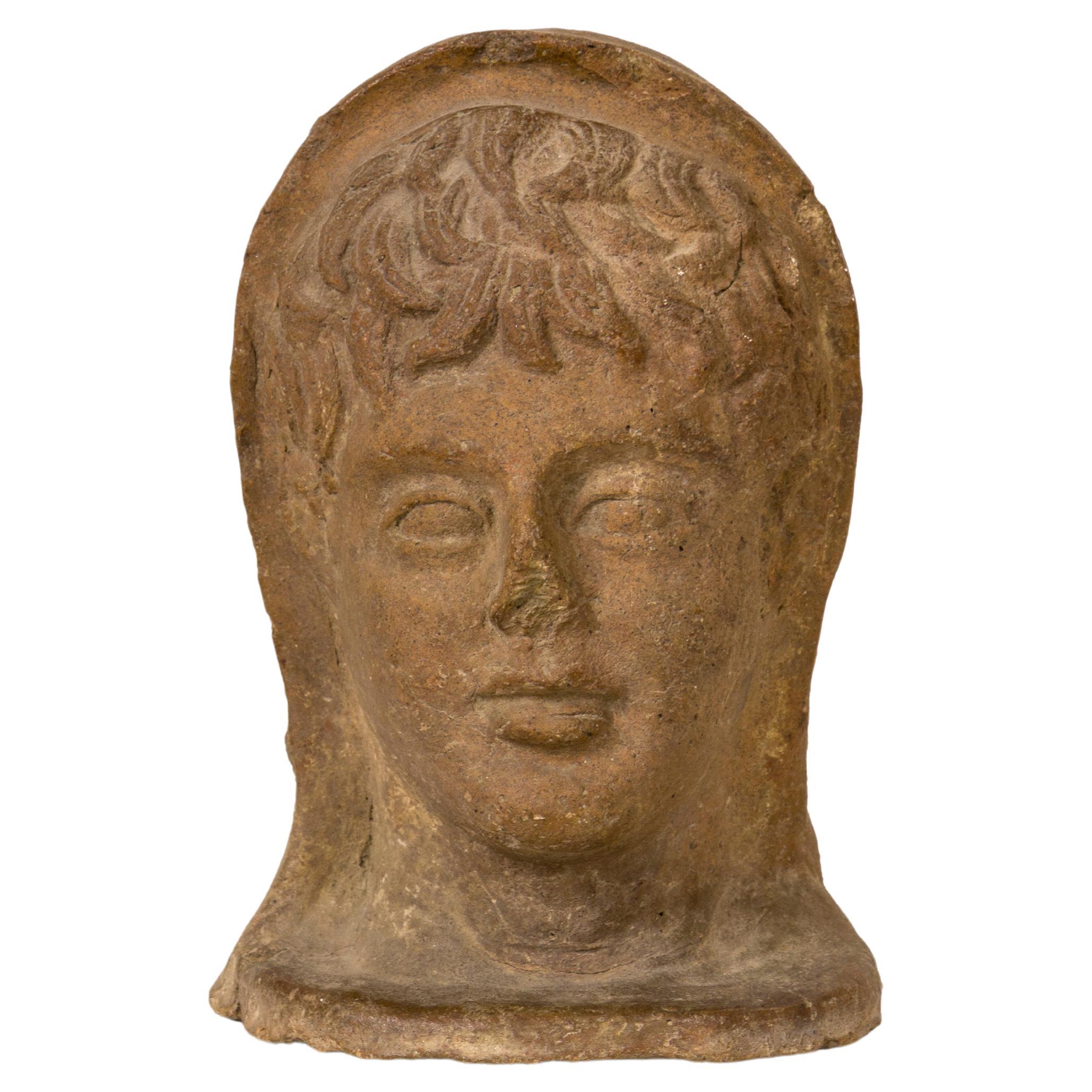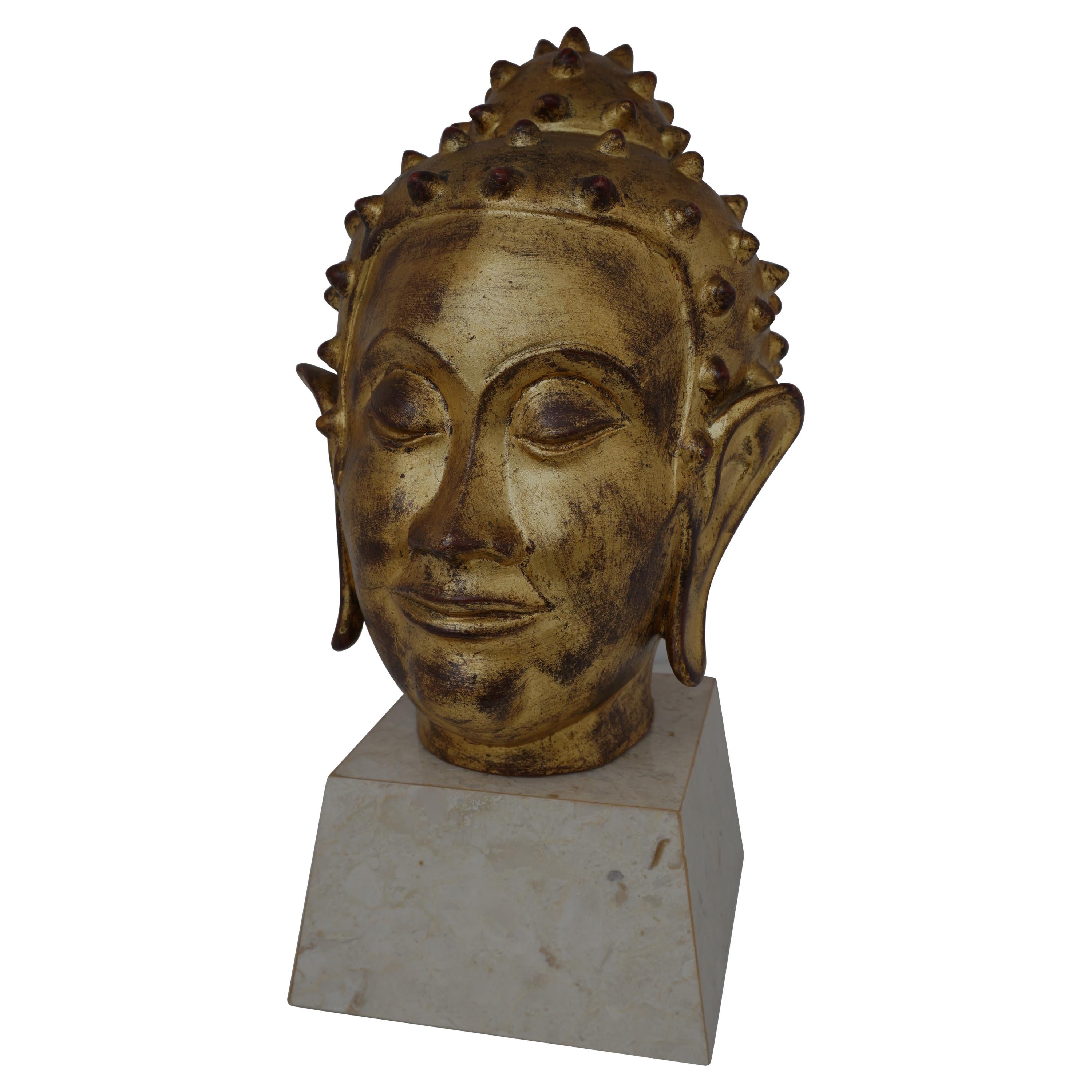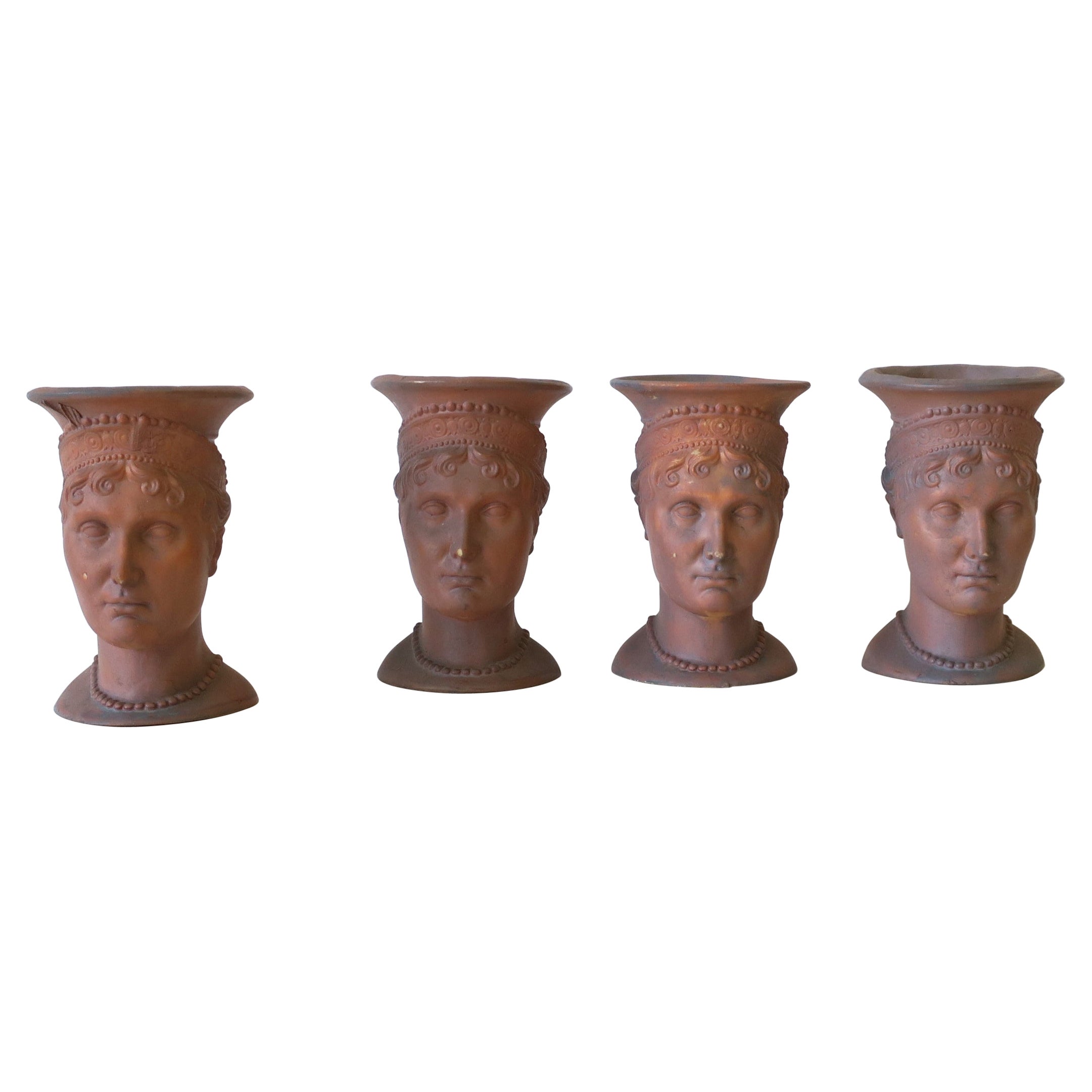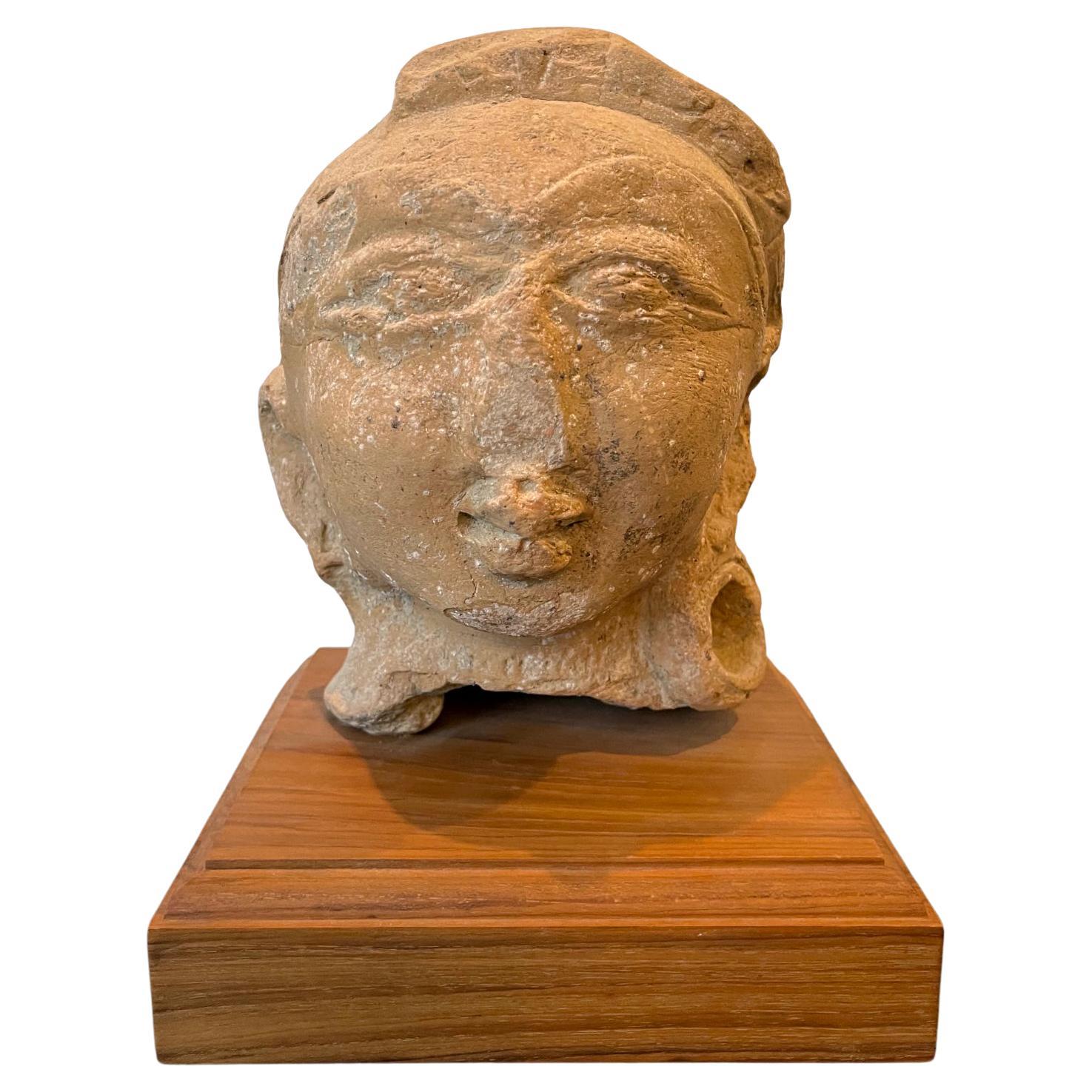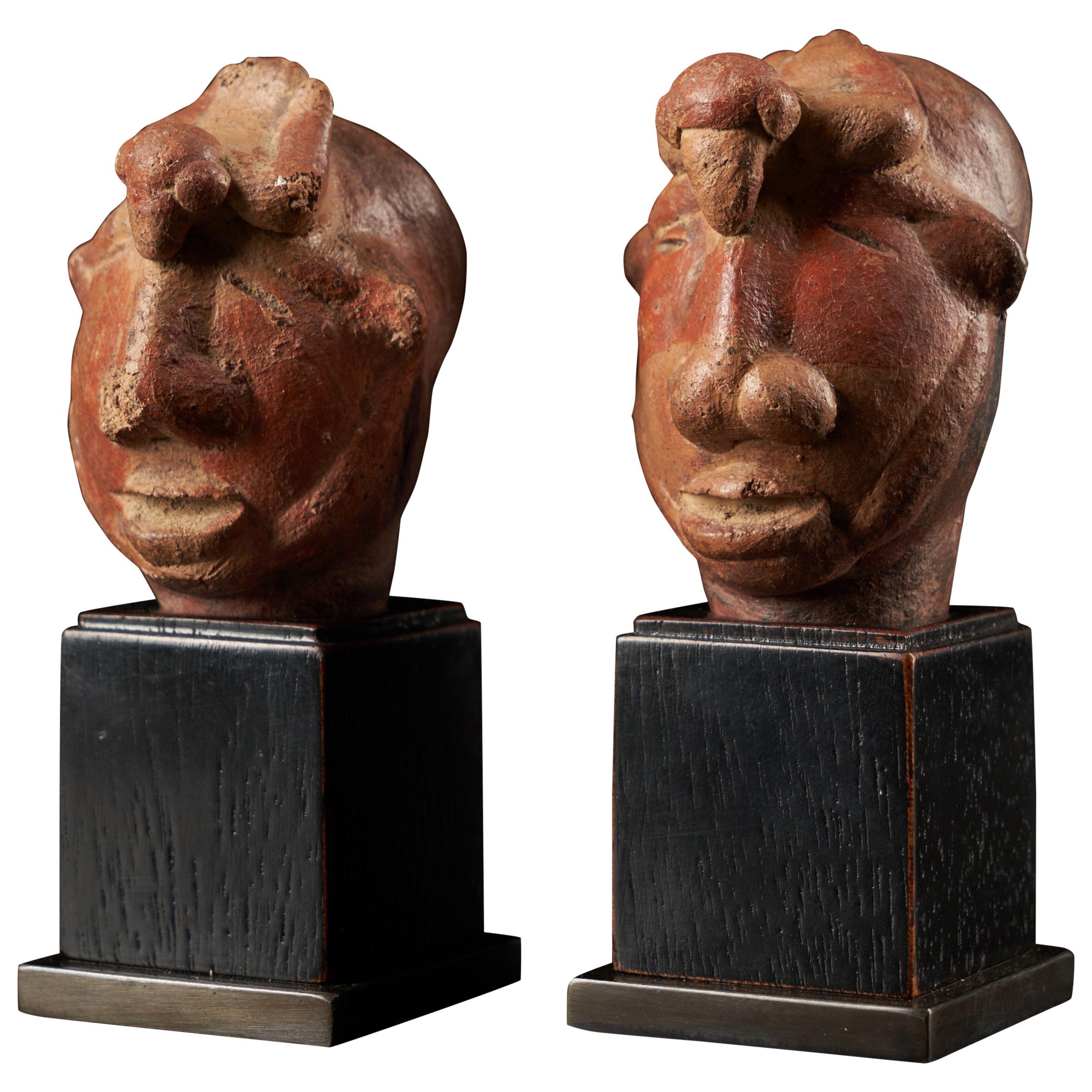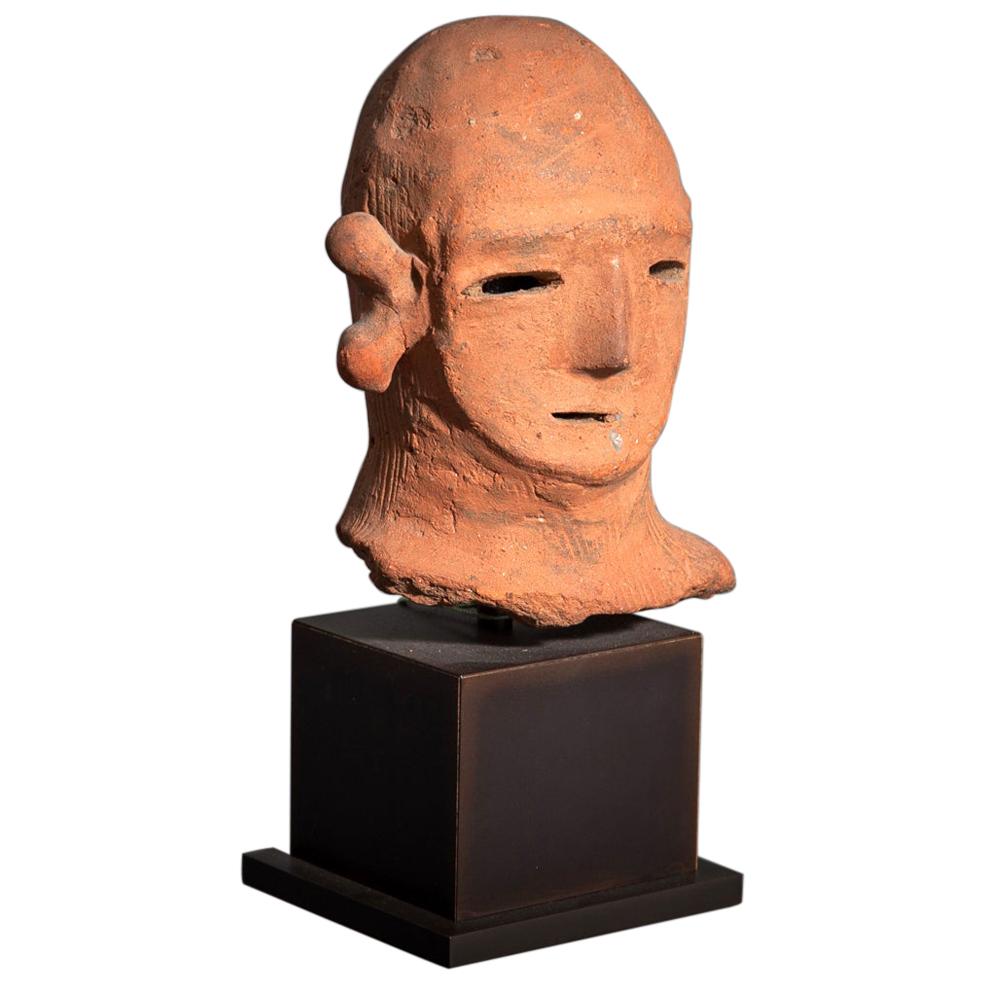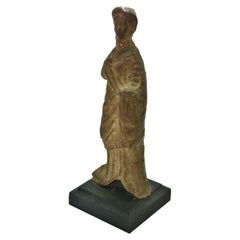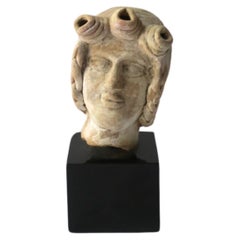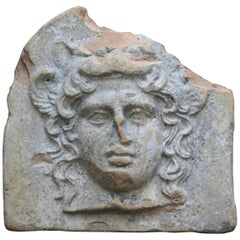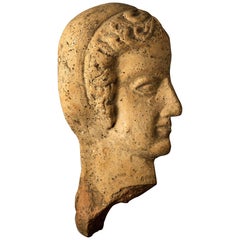
Ancient Etruscan Terracotta Votive Head
View Similar Items
1 of 4
Ancient Etruscan Terracotta Votive Head
About the Item
- Dimensions:Height: 6.38 in (16.2 cm)Width: 3.71 in (9.4 cm)Depth: 1.78 in (4.5 cm)
- Materials and Techniques:
- Period:
- Date of Manufacture:5th Century BC
- Condition:Wear consistent with age and use.
- Seller Location:Lugano, CH
- Reference Number:1stDibs: LU242839687503
You May Also Like
- Ancient Terracotta Tanagra, 'Restored'Located in Marseille, FROld Tanagra in terracotta (restored) 18 cm high. Additional information: Material: Terracotta Dimension: 18 H cm.Category
Antique 15th Century and Earlier Figurative Sculptures
MaterialsTerracotta
- Terracotta Sculpture HeadLocated in New York, NYA hand-crafted terracotta head bust sculpture on a Belgium black marble base, Europe, Greece. Exact date unknow, could be very early. Artist/Sculptor unknown. This beautiful sculptur...Category
Early 20th Century Greek Classical Greek Busts
MaterialsBelgian Black Marble
- Ancient Greek Terracotta Antefix in Form of the Head of Artemis Bendis, TarantoLocated in Antwerp, BEAncient Greek mould-made terracotta antefix decorated with the female head of the Goddess Artemis Bendis. Western Greek, Italy, Taranto, early 4th century BC. Two small feathered win...Category
Antique 15th Century and Earlier Italian Classical Greek Antiquities
MaterialsCeramic
- Ancient Greek Terracotta Votive Vessel, c. 4th C. B.C.Located in Los Angeles, CAAncient Greek Canosan terracotta votive vessel made in the c. 4th Century (B.C.). It consists of a tapered bulbous body with a human figure on top wearing a draped garment. The figur...Category
Antique 15th Century and Earlier Greek Garniture
MaterialsTerracotta
- European Carved Limestone Celtic Votive Head of a Male WarriorLocated in London, GBA Large European Carved Limestone Celtic Votive Head of a Male Warrior Wearing a Typical Flowing Moustache Small Beard and Curling Locks of Hair Stiffened with Lime Wash the Slit Mouth Open as if in Command Circa 1st Century BC - 1st Century AD Size: 31cm high, 22cm wide, 25cm deep - 12¼ ins high, 8¾ ins wide, 9¾ ins deep / 42cm high - 16½ ins high (with base) From about 500 BC, first Greek and later Roman historians mention peoples living in a large area of non-mediterranean Europe as Celts. These classical chroniclers seem to have recognised these communities as having sufficient shared cultural traditions to justify their being given a common name, ‘Keltoi’ by the Greeks, and ‘Celtae’ or ‘Galli’ by the Romans. The earliest allusions to Celts by such Greek historians as Herodotus (485 - 425 BC) were followed by Polybius (200 - 118 BC) and Livy (59 BC - AD 17) who discuss the expansion of the Celts from their central European homelands during the 4th and 3rd centuries BC. They document the presence of Celts in Spain, France, Italy, Greece and Asia Minor, specifically central Turkey. They testify to the successful Roman resistance to the Celts in Italy, after the ignominy of the sacking of Rome by them in 387 BC, and describe the huge defeat suffered by the Celts at the battle of Telemon in northern Italy in 225 BC. The Celts in Greece who sacked the sacred site of Delphi in 279 BC were defeated by King Antigonos Gonatas of Macedon in 278 - 277 BC and in Turkey by Altalus of Pergamon in 240 BC. The Celts in Spain fell under the shadow of Rome from 2nd Century BC and the Celtic heartland known by the Romans as ‘Gaul’ was conquered by the Romans under Julius Caesar in the mid 1st Century BC. Britain was not referred to as Celtic by the ancient historians, but Caesar recognised the close similarities between Britain and Gaul especially in their political organisation. Tacitus (55 - 120 AD) and others chronicled the conquest of Britain between 43 and 84 AD some mentioning the fierce nature of the Celts who went into battle naked. Celtic art therefore belongs to an artistic tradition in the early history of Europe which is no less important than that of the classical world. Art was central to Celtic identity and was closely related to the objects which it decorated. The Celts were used to seeing art as an integral part of their everyday lives. Provenance: Ex Finch and Co...Category
Antique 15th Century and Earlier European Busts
MaterialsLimestone
- 1970s Spanish Signed Terracotta HeadLocated in Marbella, ES1970s Spanish signed terracotta head.Category
Late 20th Century Spanish Busts
MaterialsTerracotta
Recently Viewed
View AllMore Ways To Browse
Antique Votive
Antique Votives
Etruscan Terracotta
Terracotta Votive
Angel Face Wood
Antique Head With A Helmet
Amphora In Bronze
Alabaster With Figurals
Maling Pottery
Collection Figurine Antique
Antique Plaster Mold
Antique Plaster Molds
Putto Marble
Ancient Helmets
Bronze Pompeii
Art Deco Car Mascot
Ancient Helmet
Pair Bronze Womens
